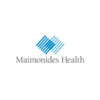
The Impact of Post Discharge One-Time Home Visit: Bridging the Gap Between Hospital and Home.
COPDCoronary Artery Disease2 moreA single post-hospital discharge home visit by a geriatric nurse practitioner or geriatric fellow can bridge the gap and ease the transition for elderly frail patients returning home after hospital admission. We believe this intervention will reduce medication errors, ensure follow-up discharge plans, decrease re-hospitalization rates, and decrease morbidity and mortality.

To Validate the Specific Patterns of Magnetocardiography, a Non-invasive Non-contact Examination...
ArrhythmiaECG is one of the most important non-invasive method to diagnose CAD and arrhythmia. However, clinically it still has its limitation. Because the electrical field could induce a magnetic field, the newly developed non-contact technique, magnetocardiography, was established to detect the local magnetic field component of the heart. It is safe and more convenient. In this study, we try to define and validate the magnetocardiographic patterns in the patients with cardiac arrhythmias or ischemia.

Evaluation of Novel Risk Factors and Clinical Outcomes of Acute Myocardial Infarction
Coronary Artery DiseasePercutaneous Coronary Intervention1 moreThe aim of this study is to investigate the potential novel risk factors for acute myocardial infarction. Predictors of poor outcomes will be also evaluated.

Platelet Reactivity After Receiving Clopidogrel Among Moderate CKD Patients Undergoing PCI
Coronary Heart DiseaseDual antiplatelet therapy (DAPT) with standard doses of aspirin and clopidogrel has long been the cornerstone in patients undergoing percutaneous coronary intervention (PCI). However, inhibition of platelet activation and aggregation after DAPT varies greatly among patients. Some clinical studies have demonstrated that patients with high on-treatment platelet reactivity are at increased risk of major adverse cardiovascular events. Tailored antiplatelet therapy seems offer an opportunity to improve outcomes after coronary stenting by drug adjustment based on platelet function testing. Unfortunately, the results of 3 major prospective trials (GRAVITAS, ARCTIC, TRIGGER PCI) of personalized antiplatelet therapy are neutral. In these studies, platelet function was only assessed by a single measurement and a single method early after the start of antiplatelet treatment. To test the stability of platelet reactivity measurements over time among patients undergoing PCI, investigators use 3 methods (VerifyNow P2Y12 assay, Flow cytometric assessment of the phosphorylation status of VASP, light transmittance aggregometry) for platelet function testing in 2 periods (~14days), with maintenance doses of clopidogrel.

Korean Coronary Overlapping Stenting Registy
Coronary Artery DiseaseThe Korean Coronary Overlapping Stenting Registry is a multicenter database which includes percutaneous intervention using drug-eluting stents from cardiovascular centers in eight affiliated hospitals of The Catholic University of Korea

Imaging and Omics for Cardiovascular Risk During NASA Deep Space Missions
Coronary Artery DiseaseThe purpose of this study is to develop new approaches for screening astronauts for cardiovascular risk during deep space missions.

Association Study to Evaluate TFPI Gene in CAD in Han Chinese
Coronary Heart DiseaseThe cases were hospitalized patients from two medical centers in Beijing and Harbin respectively. Venous blood was collected by standard vein puncture in fasting condition.

Fractional Flow Reserve Fax Registry
Coronary Artery DiseaseThe Fractional Flow Reserve Fax Registry is an investigator-initiated, real-world registry to analyze the use of fractional flow reserve (FFR) measurements in clinical practice in cardiac catheterization laboratories in Germany. The registry aims to collect the data of 2000 patients who underwent FFR recordings for clinical reasons. The main outcome parameter is the frequency of coronary revascularization following FFR. Secondary outcome parameters include the distribution of quantitative FFR results in clinical practice, the influence of intracoronary versus intravenous adenosine on the distribution of FFR results, the rate of complications as a result of FFR measurements, the average number of FFR wires needed per patient. Since the study will include a large number of patients who undergo i.c. administration of adenosine and a large number of patients who undergo i.v. administration of adenosine, it will be possible to analyze whether the route of adenosine administration is an independent predictor of the FFR result.

Performance of a New REsting Pressure Index During Invasive Angiography Compared To Adenosine Hyperemic...
Fractional Flow ReserveMyocardial1 moreTo test the feasibility and diagnostic accuracy of a new automated pressure derived resting index (Pd/Pamin), using FFR as gold standard, in de novo coronary lesions in which invasive physiological evaluation is warranted.

Multicenter LAser VA Registry of Percutaneous Coronary Interventions (LAVA)
ArteriosclerosisCoronary Artery Disease1 moreThis is a multi-center, investigator initiated study that will prospectively and retrospectively examine treatment strategies and outcomes of patients who underwent percutaneous coronary interventions (PCI). The goal of this multi-center, investigator initiated, registry is to collect information on treatment strategies and outcomes of consecutive patients undergoing laser-assisted PCI among various participating centers. The study is a purely observational, chart review study and involves retrieval and compiling of data based on clinically indicated procedures and follow-up clinical and procedural outcomes. The information collected will be used to determine the frequency of laser-assisted PCI performed at the participating sites and examine the procedural strategies utilized, and the procedural (both immediate and subsequent) outcomes.
